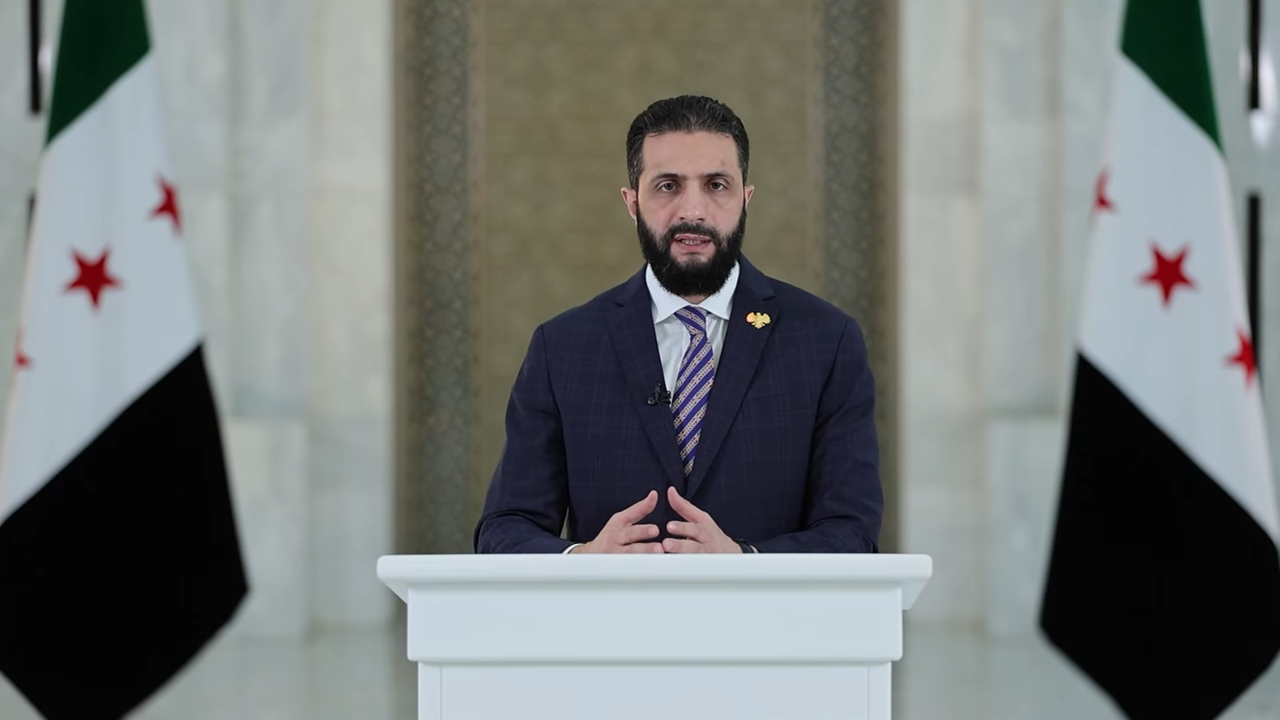UPDATE: Tensions are escalating in Syria as interim President Ahmad al-Sharaa faces a critical crisis just months into his leadership. Following a 14-day offensive that ousted longtime President Bashar al-Assad, Sharaa’s government is now under fire amid intensifying Israeli military operations targeting Syrian forces.
Israeli officials accuse Sharaa of enabling violence against the Druze minority in the southwest, particularly in the Al-Sweida province. Reports indicate that hundreds of Druze, including women and children, have been killed by Bedouin tribes allegedly supported by Syrian security forces. Israel’s response has included airstrikes on Syrian troops and key sites in Damascus, such as the defense ministry, marking the most aggressive military action in Syria since Assad’s downfall.
With Israeli Prime Minister Benjamin Netanyahu hardening rhetoric against Sharaa, the new leader may soon find himself on Israel’s hit list, mirroring past actions against leaders deemed threats to national security. “If Israel feels a leader is an evident threat, it will operate,” warns Reda Mansour, former Israeli ambassador.
As violence surges, Sharaa’s government claims to seek stability and restore control in regions dominated by Druze militias. However, allegations of targeting various minority groups, including Alawites and Kurds, have undermined these efforts. The recent conflict has prompted Israeli leaders to advocate military action, positioning Israel as a defender of minority rights in the region.
In a significant shift, the Trump administration recently revoked the foreign terrorist organization designation of Sharaa’s former group, Hayat Tahrir al-Sham, signaling a warming in U.S.-Syria relations. This follows a high-profile meeting between Sharaa and Trump, where the U.S. leader praised the Syrian interim president as a “fighter” with potential to unify the country.
However, skepticism remains among Israeli officials regarding Sharaa’s leadership. Gadeer Kamal-Mreeh, a former Knesset member, cautions that the new Syrian leader may not be trustworthy, citing his radical past and connections to extremist groups.
The stakes are high as Sharaa’s administration strives to maintain stability while facing external pressures. The U.S. State Department has publicly distanced itself from the recent Israeli strikes, urging the Syrian government to respect Druze rights and withdraw forces from Al-Sweida.
As Sharaa’s government navigates this precarious situation, the risk of further conflict looms large, particularly following a recent surge in violence. Israeli officials stress the necessity of preventing a hostile buildup near their borders, framing military action as essential for national security.
The situation remains fluid as Sharaa attempts to balance internal governance with external threats, raising questions about the future of Syria under his leadership and the potential for further Israeli intervention. With both regional and international implications, the coming days will be crucial in determining the trajectory of this ongoing conflict.
Stay tuned for updates as this story develops.
